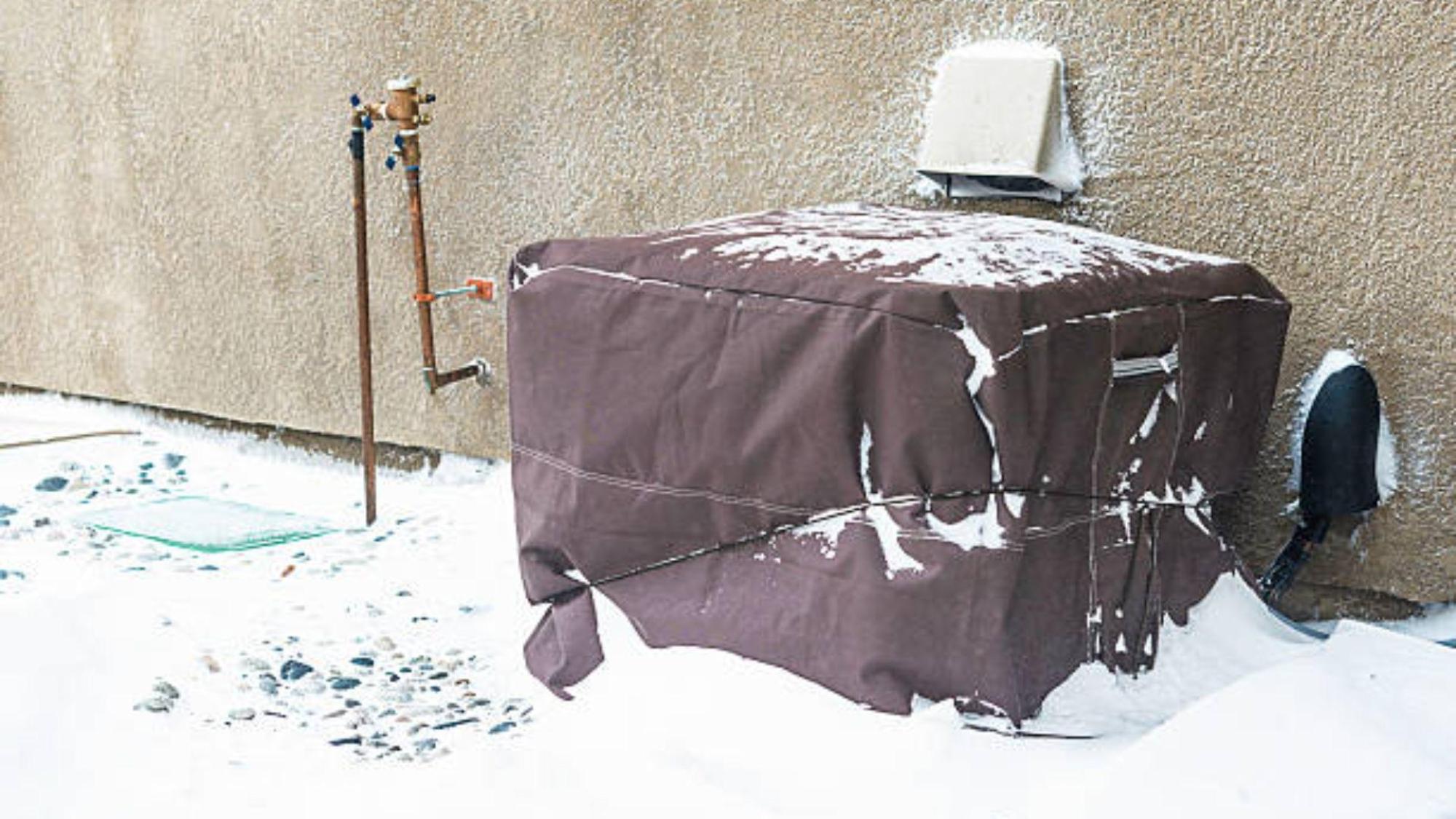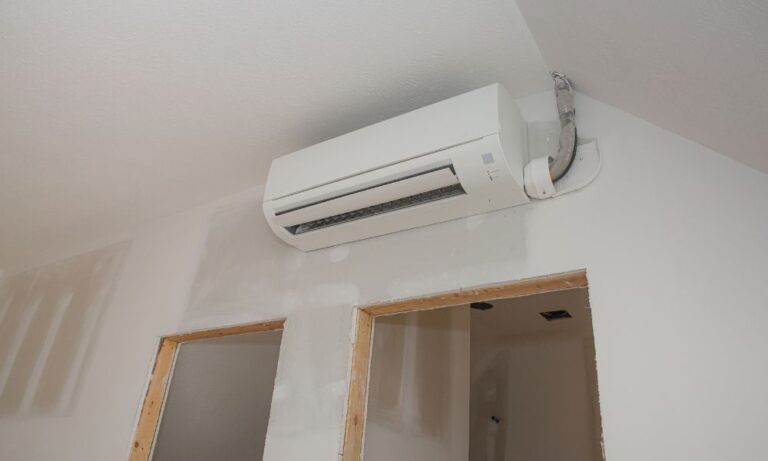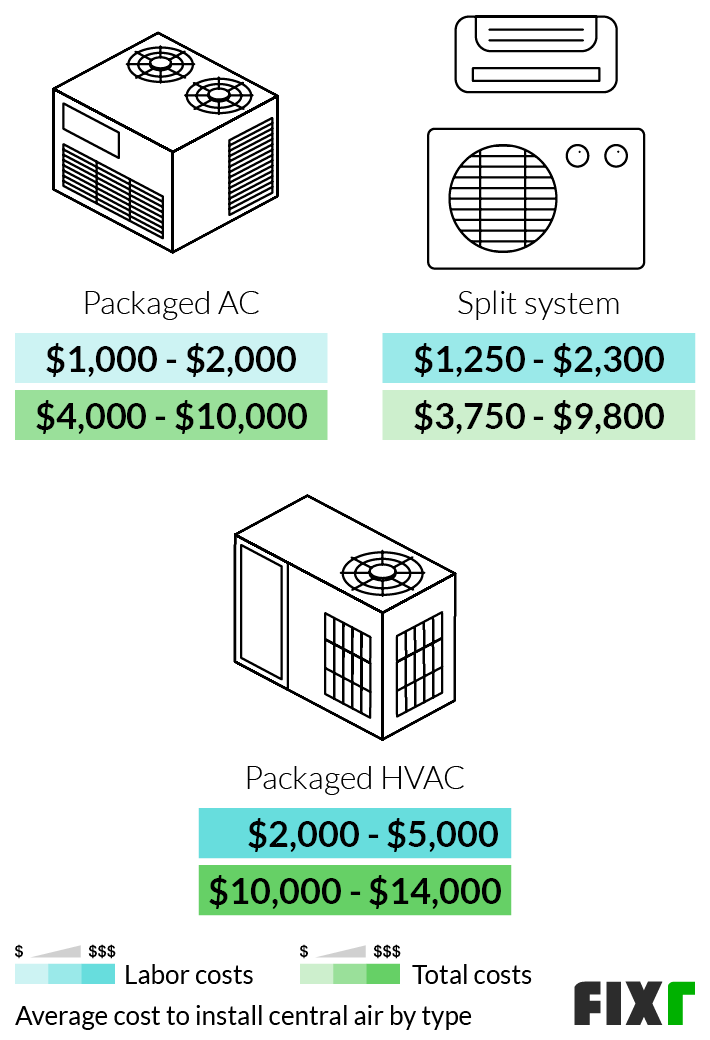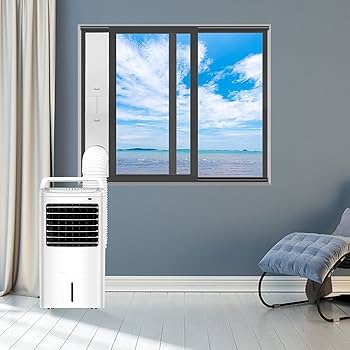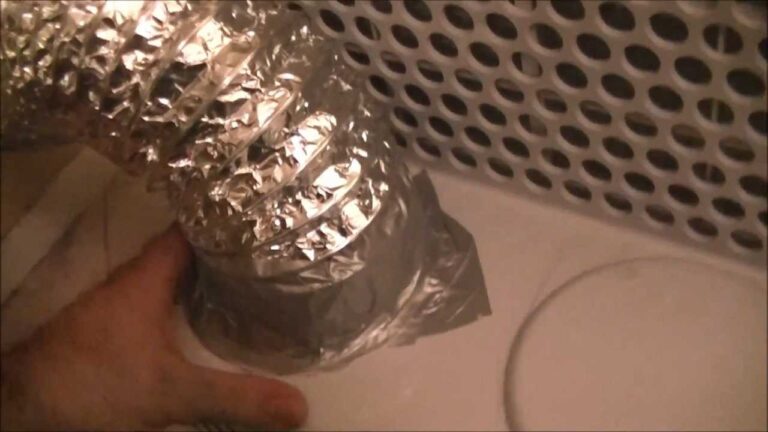Can Air Conditioners Be Stored Outside In The Winter?: Essential Tips
Air conditioners can be stored outside in the winter if properly covered and protected. Without protection, they risk damage from harsh weather.
Storing an air conditioner outside during winter requires some precautions. Proper covering is essential to shield it from snow, ice, and moisture. A waterproof, breathable cover ensures that condensation does not build up inside, which could lead to rust or electrical issues.
Elevating the unit off the ground can prevent it from sitting in puddles of water or snow. Regularly check the cover and the condition of the unit throughout winter. Taking these steps can extend the lifespan of your air conditioner and ensure it remains in good working condition for the warmer months.

Credit: lifehacker.com
Introduction To Winter Storage
Storing your air conditioner properly during winter is crucial. Proper storage ensures your AC unit remains in good condition. It helps avoid damage caused by harsh weather conditions. Many people wonder if air conditioners can be stored outside in winter. This blog section addresses this concern.
Importance Of Proper Storage
The importance of proper storage cannot be overstated. Storing your AC unit correctly prevents rust and damage. It extends the lifespan of your air conditioner. Proper storage also ensures efficiency when the unit is used again.
Here are some reasons why proper storage is vital:
- Prevents rust and corrosion
- Protects internal components
- Maintains energy efficiency
- Extends the lifespan of the unit
Common Misconceptions
There are several common misconceptions about storing air conditioners. Some believe AC units can be left outside uncovered. Others think that covering the unit is enough.
Let’s debunk these misconceptions:
| Misconception | Reality |
|---|---|
| Uncovered storage is fine | Uncovered units can get damaged by snow and ice. |
| Covering is sufficient | Covering helps but doesn’t fully protect from moisture. |
Understanding these points helps in making better storage decisions.
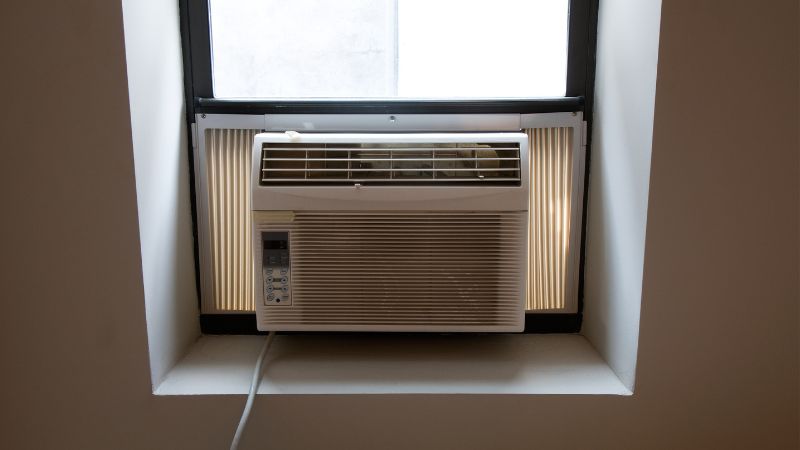
Credit: www.hvac.com
Risks Of Outdoor Storage
Storing air conditioners outside in winter poses significant risks. Understanding these risks can help you make better storage decisions.
Potential Damage
Air conditioners are delicate machines. Storing them outside can lead to potential damage. Exposure to the elements can affect their internal components. Rust can form on metal parts, leading to long-term issues. The plastic components can become brittle and crack. Also, animals may nest inside, causing further damage.
Weather-related Issues
Winter weather can be harsh on air conditioners. Snow and ice can accumulate inside the unit. This can cause the internal components to freeze. Freezing can lead to broken parts or leaks. Wind can blow debris into the unit, clogging essential parts. Rain and moisture can lead to rust and electrical issues.
| Weather Condition | Possible Effect |
|---|---|
| Snow | Accumulation and freezing |
| Ice | Internal component damage |
| Wind | Debris clogging |
| Rain | Rust and electrical issues |
- Prevent rust by keeping the unit dry.
- Cover the unit to protect from snow and ice.
- Check for debris regularly.
- Store in a sheltered area if possible.
- Inspect the air conditioner before storing.
- Clean and dry thoroughly.
- Cover with a waterproof cover.
- Store in a covered area if possible.
Preparing Your Ac For Storage
Winter is coming. It’s time to store your air conditioner. Proper storage ensures it works well next summer. Follow these steps to prepare your AC unit.
Cleaning The Unit
First, clean your air conditioner. Remove any dirt or debris. Use a soft brush to clean the fins. Wipe down the exterior with a damp cloth. Make sure the unit is dry before storing.
| Cleaning Task | Tools Needed |
|---|---|
| Remove dirt and debris | Soft brush |
| Clean the fins | Soft brush |
| Wipe the exterior | Damp cloth |
Removing And Storing Parts
Next, remove any detachable parts. This includes filters and hoses. Clean these parts before storing. Store them in a dry, safe place. Label the parts to avoid confusion later.
- Remove filters and hoses.
- Clean all detachable parts.
- Store in a dry, safe place.
- Label parts for easy reassembly.
By cleaning and storing parts, you prolong the life of your air conditioner. Follow these simple steps for a worry-free winter storage.
Choosing The Right Storage Location
Storing your air conditioner properly during winter is crucial. It ensures the unit remains in good condition. Choosing the right storage location is key. This prevents damage from harsh weather conditions.
Indoor Vs. Outdoor
Indoor storage is the best choice for your air conditioner. It protects the unit from extreme temperatures. It also shields it from snow and ice.
If indoor space is unavailable, outdoor storage can work. You must take extra precautions to protect the unit.
Ideal Conditions
Your air conditioner needs a dry and cool place. This prevents rust and corrosion.
Use a cover to protect it from dust and debris. Ensure the cover is breathable to avoid moisture buildup.
Elevate the unit off the ground. This prevents water damage from melting snow or rain.
| Storage Location | Conditions |
|---|---|
| Indoor | Dry, cool place, covered |
| Outdoor | Covered, elevated, breathable cover |
Follow these tips to store your air conditioner safely.
Covering Your Ac Unit
Storing your air conditioner outside during winter needs extra care. One of the most important steps is covering your AC unit. A good cover can protect your AC from harsh weather. It can prevent debris from damaging your unit. Let’s explore how to cover your AC properly.
Types Of Covers
There are different types of covers available for your air conditioner. Each type has its own benefits.
- Fabric Covers: These are made of durable material. They are easy to install and remove.
- Plastic Covers: These provide great protection against water and snow. They can be less breathable, though.
- Custom Covers: These are tailored to fit your specific AC model. They offer the best protection and fit.
Proper Cover Installation
Installing the cover properly is crucial for its effectiveness. Follow these steps for a secure fit:
- Clean the Unit: Remove any leaves, dirt, or debris from the AC unit.
- Dry the Unit: Make sure the unit is completely dry before covering.
- Position the Cover: Place the cover over the top of the unit. Ensure it covers all sides.
- Secure the Cover: Use straps or ties to secure the cover tightly. Make sure it won’t blow off in the wind.
It’s also important to check the cover regularly. Look for any tears or damage. Replace the cover if needed. A well-maintained cover keeps your AC unit safe all winter long.

Credit: gunthers.com
Regular Maintenance During Storage
Storing your air conditioner outside in the winter requires special care. Regular maintenance ensures it stays in good condition. Neglecting this can lead to expensive repairs. Follow these steps for easy and effective maintenance.
Routine Checks
Perform routine checks to ensure your air conditioner remains functional. Inspect the unit for any visible damage. Look for cracks, dents, or broken parts. Verify that all components are intact. Check the electrical connections. Make sure there are no loose wires.
- Inspect for visible damage
- Check for cracks or dents
- Ensure all components are intact
- Verify electrical connections
Preventing Rust And Corrosion
Preventing rust and corrosion is vital for your air conditioner’s longevity. Moisture can cause rust, leading to damage. Use a weatherproof cover to protect your unit. Ensure the cover fits snugly. Remove any debris from around the unit. This includes leaves, branches, and dirt.
- Use a weatherproof cover
- Ensure the cover fits snugly
- Remove debris from around the unit
Apply a rust-preventive spray to metal parts. This adds an extra layer of protection. Check the unit regularly during winter. Look for signs of rust and address them immediately.
| Action | Frequency |
|---|---|
| Inspect for damage | Monthly |
| Check electrical connections | Every 3 months |
| Apply rust-preventive spray | Before winter storage |
| Check for rust | Monthly |
Alternative Storage Solutions
Storing your air conditioner outside during winter can be risky. There are better ways to keep it safe and in good condition. Here are some alternative storage solutions to consider.
Using A Shed Or Garage
One of the best places to store your air conditioner is in a shed or garage. These spaces provide shelter from harsh weather. They protect your unit from snow, ice, and rain. Here are some tips:
- Clean the unit before storage.
- Place it on a raised surface to avoid moisture.
- Cover the unit with a breathable cloth.
Using a shed or garage helps extend the life of your air conditioner. It keeps it safe from winter damage.
Professional Storage Options
If you lack indoor space, consider professional storage options. Many companies offer climate-controlled storage units. These units keep your air conditioner at a stable temperature. They also provide extra security.
Benefits of using professional storage:
| Benefit | Description |
|---|---|
| Climate control | Keeps the unit at a stable temperature. |
| Security | Offers protection against theft. |
| Convenience | You can access your unit easily. |
Professional storage is a safe and convenient option. It ensures your air conditioner stays in great shape over the winter months.
Conclusion And Final Tips
Storing your air conditioner outside during winter can be a concern. Proper storage helps extend its life and efficiency. This section provides a summary and final tips for safe storage.
Recap Of Key Points
- Clean the Unit: Remove all dirt and debris before storage.
- Cover Properly: Use a weatherproof cover to protect from snow and ice.
- Elevate Off the Ground: Place on a sturdy platform to avoid water damage.
- Check for Leaks: Ensure there are no refrigerant leaks before storage.
Additional Resources
For more information on air conditioner maintenance, check these resources:
- Energy Saver: Maintaining Your Air Conditioner
- Consumer Reports: Air Conditioners Guide
- Home Depot: How to Maintain an Air Conditioner
| Tip | Action |
|---|---|
| Inspect Regularly | Check for any signs of damage or wear. |
| Store in Safe Area | Keep away from falling branches and heavy snow. |
| Use Proper Tools | Use a cover designed for air conditioners. |
Follow these tips to ensure your air conditioner remains in good condition. Proper storage will help you avoid costly repairs and replacements.
Frequently Asked Questions
Can You Store An Air Conditioner In A Shed In The Winter?
Yes, you can store an air conditioner in a shed during winter. Ensure it’s clean, dry, and covered to prevent damage.
Can You Leave An Air Conditioner Outside In The Winter?
Yes, you can leave an air conditioner outside in the winter. Cover it with a protective cover to prevent damage.
Can Portable Air Conditioners Be Stored In Freezing Temperatures?
Yes, portable air conditioners can be stored in freezing temperatures. Ensure all water is drained to prevent damage.
Conclusion
Storing air conditioners outside in winter requires care. Properly cover and elevate the unit to prevent damage. Regularly check for ice buildup and remove it. By following these steps, you can ensure your air conditioner remains in good condition. This will help extend its lifespan and maintain efficiency.

